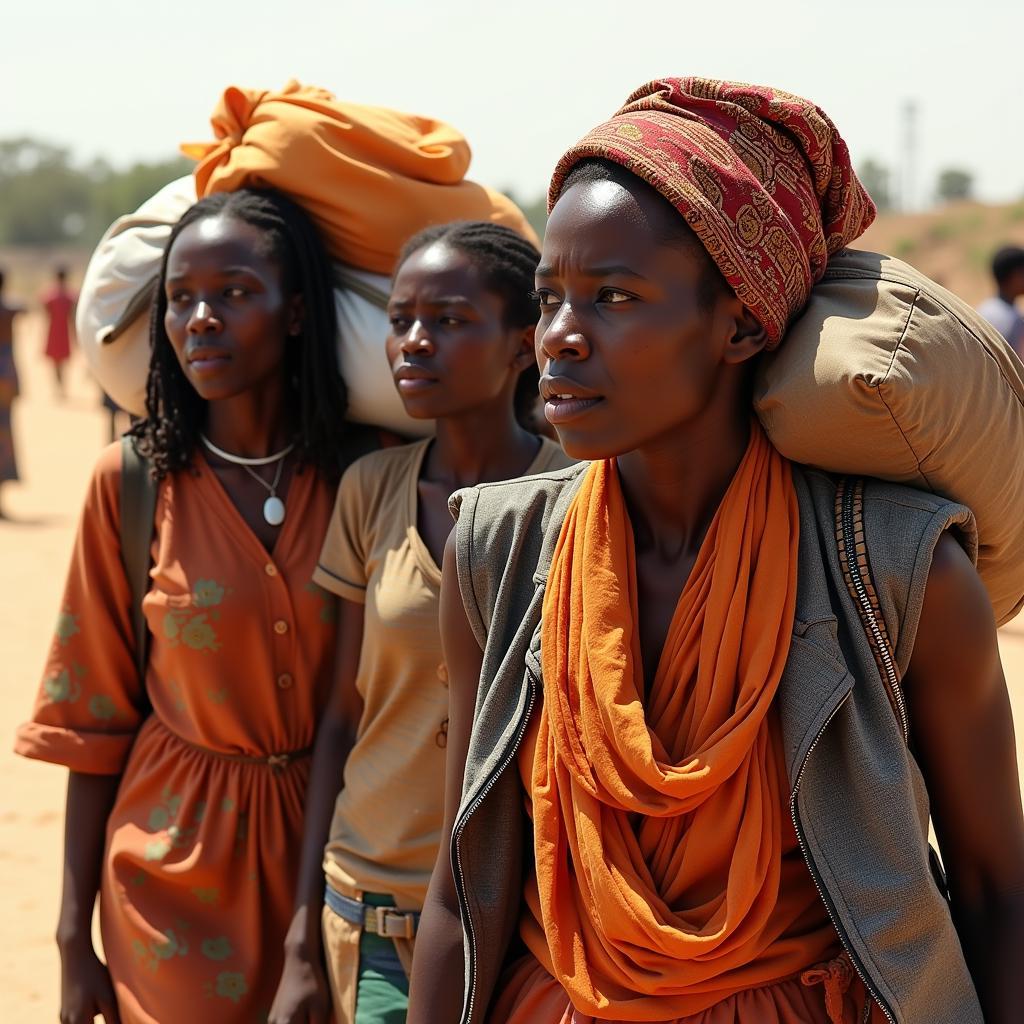Decoding the African Knife Meme
The “African Knife Meme” is a complex and often misunderstood phenomenon that reflects a multifaceted intersection of online humor, cultural stereotypes, and the portrayal of Africa in digital media. While seemingly simple at first glance, delving deeper reveals a layered narrative that requires careful examination to fully understand its implications and impact. This article aims to unpack the origins, evolution, and various interpretations of the African knife meme, offering a nuanced perspective on its significance in the context of internet culture and its portrayal of Africa.
The Genesis of the “African Knife Meme”
The meme typically features images or videos depicting individuals, often in rural African settings, brandishing large knives or machetes. These are often juxtaposed with captions that humorously exaggerate the perceived danger or absurdity of the situation. While pinpointing the exact origin of the meme is difficult, its rise can be attributed to the increasing accessibility of internet and social media platforms across Africa, combined with the global reach of meme culture.
The use of large knives in many parts of Africa is often practical, tied to agricultural activities, food preparation, and other everyday tasks. The meme, however, often removes this context, presenting the knives solely as instruments of violence or humor. This decontextualization contributes to the perpetuation of harmful stereotypes about Africa as a dangerous and uncivilized continent.
Interpretations and Implications of the Meme
The “African knife meme” can be interpreted in various ways, ranging from harmless online banter to a more problematic reinforcement of negative stereotypes. Some argue that the meme is simply a form of dark humor, highlighting the absurdity of certain situations. Others, however, criticize it for perpetuating harmful representations of Africa and its people.
One key aspect of the meme is its reliance on exaggerated portrayals of violence. This often reinforces the perception of Africa as a continent rife with conflict and danger, ignoring the diverse realities and complexities of life on the continent. This simplified and often misleading portrayal can have real-world consequences, influencing perceptions and potentially contributing to prejudice against African individuals and communities.
Beyond the Stereotype: Understanding the Cultural Context
To truly understand the “African knife meme,” it’s crucial to consider the cultural context in which it exists. The use of knives and machetes in many African communities is deeply rooted in tradition and practicality. They are essential tools for agriculture, hunting, and various other daily activities. The meme, by isolating these tools from their cultural context, distorts their significance and perpetuates a one-dimensional narrative.
Furthermore, the meme often fails to acknowledge the diversity of cultures and traditions across Africa. The continent is home to thousands of ethnic groups, each with its own unique customs and practices. By presenting a homogenized image of Africa, the meme erases this rich tapestry of cultural diversity and reinforces harmful stereotypes.
How Can We Move Forward?
Moving beyond the harmful implications of the “African knife meme” requires a critical examination of how Africa is portrayed in digital media. Promoting a more nuanced and accurate understanding of the continent’s diverse cultures and realities is essential to counteracting these stereotypes.
Educating oneself about the diverse cultures and histories of African countries is a crucial first step. Engaging with content created by African individuals and communities can also help to broaden perspectives and challenge existing biases. Furthermore, critically evaluating the memes we consume and share can help us to avoid perpetuating harmful stereotypes.
Conclusion
The “African knife meme,” while seemingly a simple internet phenomenon, reveals complex issues surrounding cultural representation and the perpetuation of stereotypes in the digital age. By understanding the context and implications of this meme, we can work towards a more informed and nuanced understanding of Africa and its diverse cultures. Let us move beyond the simplistic narratives and embrace the richness and complexity of the African continent.
FAQ
-
What is the “African knife meme”?
The “African knife meme” typically involves images or videos of individuals in Africa with large knives, often paired with humorous captions that exaggerate perceived danger. -
Why is the meme considered problematic?
It reinforces stereotypes about Africa as violent and uncivilized, ignoring the tools’ practical uses and cultural context. -
What are the real-world consequences of these stereotypes?
They can contribute to prejudice and discrimination against African individuals and communities. -
How can we counteract these stereotypes?
Educate ourselves about African cultures, engage with content created by Africans, and critically evaluate the memes we consume. -
What is the significance of knives in many African communities?
They are essential tools for agriculture, hunting, and other daily activities, deeply rooted in tradition and practicality. -
What is the key takeaway from understanding the “African knife meme”?
It highlights the importance of critical media consumption and the need for accurate and nuanced portrayals of Africa. -
How does the meme contribute to a one-dimensional view of Africa?
It isolates the tools from their cultural context and disregards the diversity of traditions across the continent.
Common Scenarios and Questions
-
Scenario: Seeing the meme shared online without context.
-
Question: What is the real story behind the image/video?
-
Scenario: Someone using the meme to make a joke about Africa.
-
Question: Are you aware of the harmful stereotypes this perpetuates?
Suggested Further Reading/Related Articles (Hypothetical)
- The Cultural Significance of Tools in East African Communities
- Misconceptions about Africa: Debunking Common Myths
- The Power of Memes: Shaping Perceptions and Influencing Culture
Need support? Contact us 24/7: Phone: +255768904061, Email: [email protected], or visit us at Mbarali DC Mawindi, Kangaga, Tanzania.
